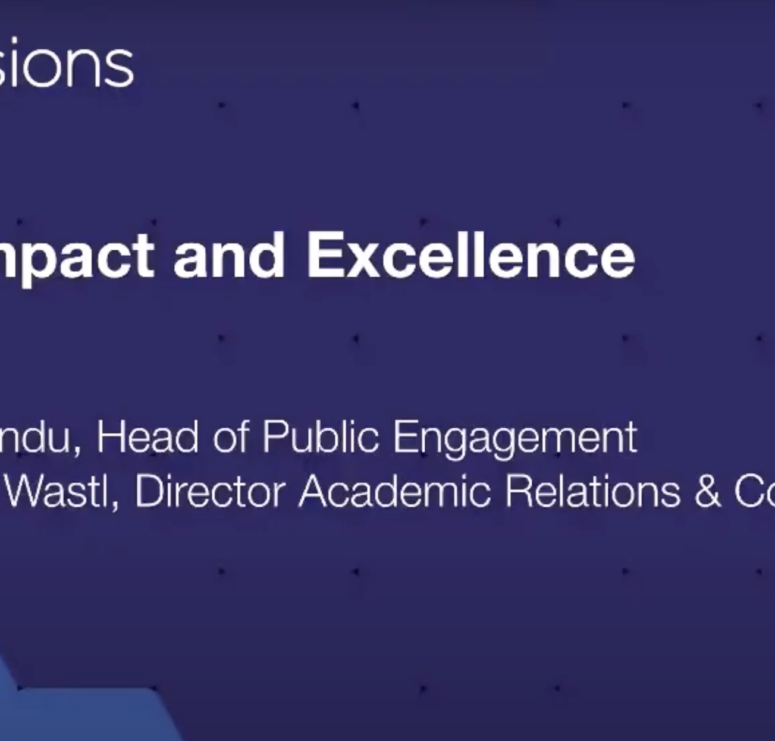Advancing Research Impact and Reputation
There are many factors involved in generating quality research outputs. They are the product of long hours spent securing funding, challenging the norm, conducting novel work, collaborating, publishing and disseminating your final findings so that others can build on them. For many researchers, the end goal is to help society overcome some of the biggest challenges it faces. But how can we measure the impact of research on society? And how can we use the insights we gain to inform future decision-making?
‘Impact’ has become something of a buzzword in recent times. Researchers are continuously seeking new ways to quantify their effect on society, often to satisfy the requirements of funders or research impact exercises, such as the REF in the UK. However, is it really necessary for all research to demonstrate a tangible impact? Are we in danger of stifling groundbreaking research that could underpin the impactful discoveries of tomorrow?
Our goal is to help the community answer these questions. At Digital Science, we are working to:
- Enable the identification of any areas of potential impact that have previously gone unnoticed
- Determine areas in which research topics can be united to create greater impact
- Help researchers establish the need for impact in their research planning, and the best route to achieving that impact
Defining Impact
We want to help to shape a research culture in which all parties can claim the credit and recognition that they deserve. We want to contribute to building a societal culture in which expertise is valued.
Impact and Excellence
Within the community, we often hear talk of excellence in research and the need for high-impact results, but what do people mean when they use these terms? Suze Kundu and Juergen Wastl reflect on how Digital Science and its portfolio companies support their global client base to achieve their goals and demonstrate their impact and excellence in research.
New Challenges Need a New Approach
We want to help to shape a world in which academics are valued not by the name or impact factor of the journals in which they’ve published, but on the substance and quality of their own research. We believe that our software solutions, and the insights gained from analysing the data they contain, can help our community create that world.
Measuring In Context
Rebecca Pool speaks to Daniel Hook, Chief Executive of Digital Science, about China’s move away from a single-point metrics-focused evaluation system.
Dimensions Releases Datasets as a New Content Source for All Users
Digital Science’s Dimensions database will now integrate more than 1.4m datasets as a new content type. The datasets will be available to all
Beyond Benchmarking
Research Evaluation’s Gender Problem – and Some Suggestions for Fixing It #STMchallenges
Research evaluation in the sciences has a gender problem and the indicators we use to understand academic impact are faulty.
Impact and Engagement: Thinking Beyond Assessment
The Australian Research Council’s (ARC) approach to measuring impact and engagement is yet to be refined, and new information needs to be collected.







